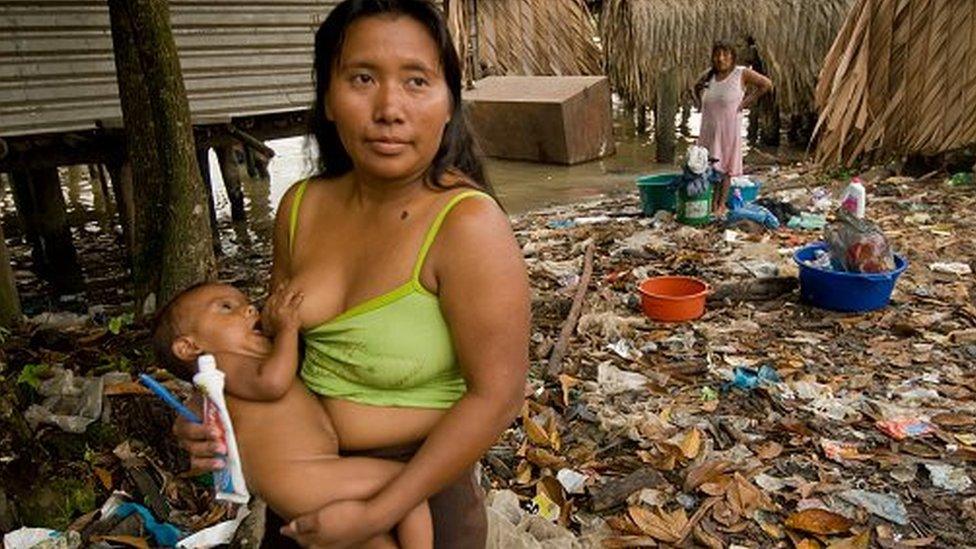Venezuela indigenous group flees crisis for Brazil
- Published

Warao people live in houses built over the water on the shores of the Orinoco river in Venezuela.
Around 400 indigenous Warao people from the Orinoco Delta in Venezuela have arrived in the Brazilian city of Manaus in the Amazon.
The authorities have declared a social emergency to seek government funds to help with the influx.
The Warao say they travelled around 2,000 km (1,250 miles) and are fleeing hunger and Venezuela's worsening economic and political crisis.
Warao people have also gone to the northern Brazilian state of Roraima.
In Boa Vista, the state capital, city authorities say more than 500 Warao arrived across the border but were deported because of concerns about vagrancy and begging.
In Manaus, the group are begging at traffic lights and living in a makeshift encampment in terrible conditions under a viaduct near the bus station.
According to municipal secretary Elias Emanuel, the Venezuelans arrived seeking jobs in the city's industrial complex, but they lack documents needed for employment.
"Now our Federal Police will help them. We want to include them in our social programmes, too, but since they are foreign Indians we really need support," Mr Emanuel said in a statement.
The term Warao translates as "the boat people," after the Warao's lifelong and intimate connection with water
Most of the approximately 20,000 Warao inhabit Venezuela's Orinoco Delta region, with smaller numbers in neighbouring Guyana and Suriname.
According to the Brazilian Ministry of Justice more than 5,400 Venezuelans have requested visas and permission to stay in the country.
Both Roraima and Amazonas states, which border on Venezuela, have reported many more people coming across looking for basic food goods, medicine and temporary jobs.
Border towns in Roraima say tens of thousands of Venezuelan migrants have been using local state hospitals and social services, which have been overwhelmed.
- Published14 October 2014
- Published16 September 2015